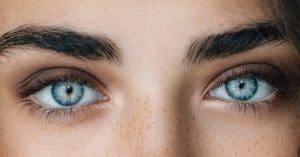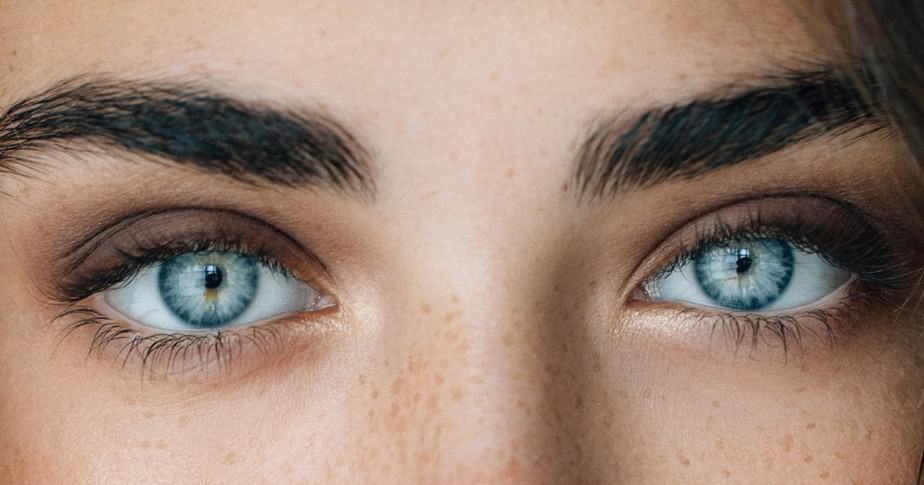 Are eye health supplements worth it?
Are eye health supplements worth it?
We stare at our laptop, our tablet or our mobile phone. We tell ourselves we’re going to break the habit. But somehow, within minutes, our eyes are glued to our screens once again. But at what cost?
If you’re living in America, this scenario probably sounds pretty familiar. The average American spends 10+ hours daily staring into a screen; that’s nearly half of our day, and the vast majority of our time spent awake. This isn’t good for our fitness, but it also isn’t good for our eyes. Heavy computer use can cause dry eyes, eye fatigue, headaches, blurred vision and other not-so-great conditions. That’s the same for adults as it is children.
Yet screen time is only increasing, thanks in part to our mobile-first mentality. It’s getting so dire that Harvard is warning us of the effects of Computer Eye Syndrome, in which our eyes get dry and experience serious eyestrain. Simply put, the bright lights and pixels on your screen aren’t natural, or particularly easy, for your eyes to focus on for long periods of time.
There are the obvious lifestyle fixes to your screen-time woes. Spend less time at a computer or on your phone. Bump up that font size, even if it makes you feel old and uncool. But if you’re beholden to the computer for work or otherwise will have difficulty drastically trimming your screen time, there are also natural ways to give your eyes a boost in the process.
Supplements for better eye health
- Vitamin A: Vitamin A often gets overlooked amid the glow of, say, Vitamin C. But when it comes to your eyes, Vitamin A is the most important of them all. Your retinas use this vitamin to aid in night vision, and to process what’s going on in the first portion of your vision pathway. Vitamin A also helps keep your eyes lubricated, warding off that dreaded “dry eye” experienced by more than 26 million Americans. And that was back in 2012; the number is likely even larger now, making Vitamin A all the more crucial.
- Carotenoids: These naturally-occurring pigments can help ward off oxidative stress, which can lead to various eye diseases over time. The key carotenoids we’re talking about here are lutein and zeaxanthin. When taken along with Vitamin C, Vitamin E, zinc and copper, beta-carotene has been shown to actually slow the progression of age-related macular degeneration—one of the major causes of vision loss in older adults.
Beta-carotene is transformed into Vitamin A when we eat it, making it all the better to get your fill of these super pigments. For a deeper dive into carotenoids for eyesight, you can also explore the less-discussed astaxanthin, which can deliver free-radical fighting powers directly to your eyes.
- Fish oil: The Omega-3s found in fish oil aren’t just good for your skin and hair; they’re also crucial for your eyes. A fish oil supplement could decrease eye inflammation and give your eyes a moistness crucial for both protection and proper function. High-quality veggie Omega-3 supplements will work for vegans and vegetarians whose diets don’t support traditional fish oil; just make sure you know exactly what’s in the blend.
- Vitamin C: If you’re not already taking Vitamin C for its wound healing and skin-enhancing properties, take it for its eye benefits. Ascorbic acid can help you form the collagen needed in your eye’s cornea, and maintain healthy blood vessels throughout the body, including in the capillaries of your retinas. Vitamin C deficiency can play a role in the development of cataracts as you age.
- Vitamin E: In the macular degeneration study we mentioned earlier, Vitamin E was shown to be one of many supplements that ward off this age-related eye issue. It’s particularly effective when taken with Vitamin C.
- Zinc: In some cases, chronic dry eye has been linked to a lack of antioxidants. Zinc is adept at fighting off free-radical damage, promoting healthier cells. It’s also found naturally in your eyes.
Even if you’re limiting your screen time, it’s worthwhile to fit these nutrients into your diet. Eyes are considered the windows to your health, and an issue in your eyes could signal issues elsewhere. If you’ve been experiencing eye fatigue or dry eye, take a look at your diet and supplements to see if any of the above vitamins and minerals are lacking. We’re especially big fans of lutein and zeaxanthin. Thanks to solid research into the eye-boosting power of these carotenoids, they’re becoming easier to find on supplement shelves.
I’m not just a supplement analyst. I’m an extremely qualified one! I am a Certified Nutrition Coach (CNC) and actually received my certification directly from the National Academy of Sports Medicine. I am also a Nutrition & Wellness Consultant, certified by the American Fitness Professionals Association (AFPA).


